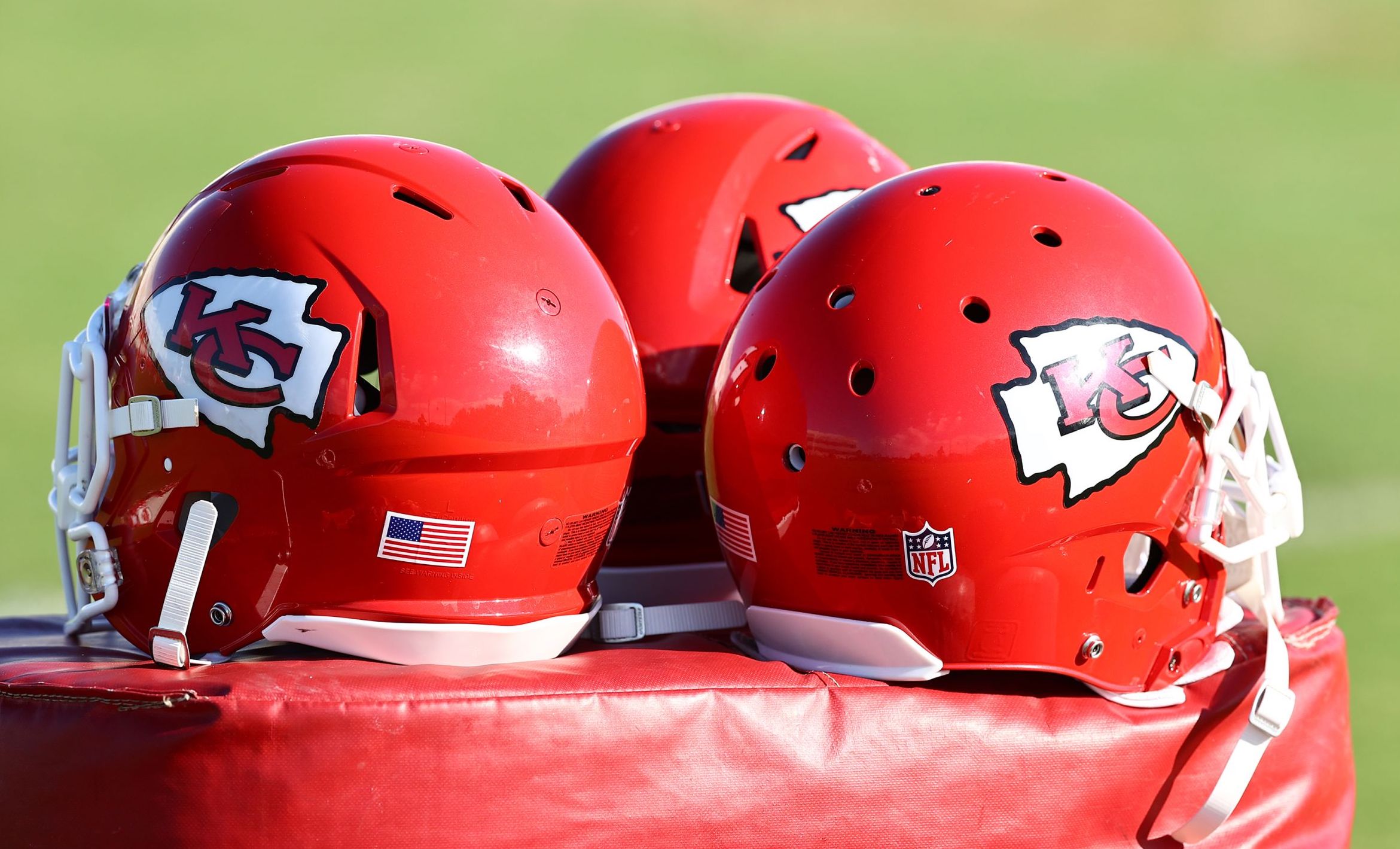With one week to go before the beginning of the new league year, the NFL has pegged the 2021 salary cap at $182.5 million for the 2021 season, leaving the Chiefs with work to do before the clock strikes 3 p.m. on March 17.
The Chiefs will also rollover almost $5.1 million in salary-cap space from the 2020 season, setting the club’s available spending budget at just under $187.6 million.
General manager Brett Veach said last month that his staff worked out different cap scenarios ranging from the established floor of $175 million through upwards of $195 million. He’s confident in the plan established with help from director of football administration Brandt Tilis and football operations counsel and personnel executive Chris Shea.
“They tell me anything over $185 (million) and we’re in pretty good shape,” Veach said. “But we’re prepared if it’s $175 (million) too.”
According to salary cap obligations calculated by Spotrac.com and OverTheCap.com, the Chiefs must shed between $19 to $22 million in pay salary costs to get under the cap by next Wednesday. The salary cap for the beginning of the new league year includes the top 51 contracts in value along with any dead cap charges stemming from players no longer on the roster. The Chiefs have approximately $2.7 million in dead cap space.
Massaging the salary cap isn’t a mystery for the Chiefs. At one point last offseason, the club had just $187 in available cap space yet still managed to negotiate extensions with Patrick Mahomes, Chris Jones and Travis Kelce with plenty of room to spare.
There are several different ways the Chiefs can reduce their cap obligations, including signing veterans to extensions, restructuring existing contracts or releasing players without guaranteed money.
Veach and the Chiefs could make significant headway toward getting under the cap by reaching terms on a contract extension for safety Tyrann Mathieu, who carries a $19.7 million cap hit this season including a $14.55 million base salary. A long-term extension for Mathieu with a minimum base salary, a signing bonus and guaranteed money in future seasons could shave as much as $10 million off the salary cap.
Renegotiations with other veterans are likely, including defensive end Frank Clark. Clark carries the team’s largest cap hit of $25.8 million this season with a base salary of $18.5 million. The Chiefs renegotiated Clark’s contract last season to create cap space, and could do so again this season. Converting some of his base salary into a signing bonus can push cap charges into future seasons.
Veach doesn’t have many worries when it comes to creating future cap obligations. While the salary cap dipped from $198.2 million in 2020 to $182.5 million this season due to the COVID-19 pandemic, the NFL is currently negotiating new television contracts that could potentially double their broadcast revenues. The salary cap expects to quickly ascend higher starting next season, making it easier for the Chiefs to push salary obligations into the future.
That could include restructuring the contract of Mahomes, who carries a $24.8 million cap hit this season. The majority of that hit comes with a roster bonus of $21.7 million. The Chiefs could convert some or all that into a signing bonus and spread the impact over multiple future seasons. Converting the roster bonus into a signing bonus and spreading it over all 11 remaining seasons of the contract would reduce this season’s salary cap hit to just more than $5 million, a savings of up to $19.8 million.
Many teams around the NFL are releasing veterans to clear cap space, and the Chiefs could consider the same strategy. The club doesn’t have many obvious choices for cuts, however, that would create considerable cap space.
Offensive tackles Eric Fisher ($15.18 million) and Mitchell Schwartz ($10 million) are less likely targets for cuts and more likely candidates to sign restructured contracts with voidable years. Both players are in the final year of their contract. The Chiefs could convert the majority of their base salaries to signing bonuses, then tack on a second year to the contract that would become voidable.
Both players would then still become free agents next season, and the Chiefs could push their salary obligations into next year when the cap expects to increase sharply. That move could create around $7 million in cap space.
The Chiefs have just two veterans whose release would create more than $2 million in free cap space. Linebacker Anthony Hitchens has $10.66 million cap charge this season, but he carries a dead cap number of $8.4 million. Hitchens also appears a big part of the club’s plan on defense, making his departure unlikely.
Running back Damien Williams, who opted out of the 2020 season, is in the final season of his contract with a cap charge of $2.7 million. The club would save just $2.2 million in cap space parting ways with the veteran.


